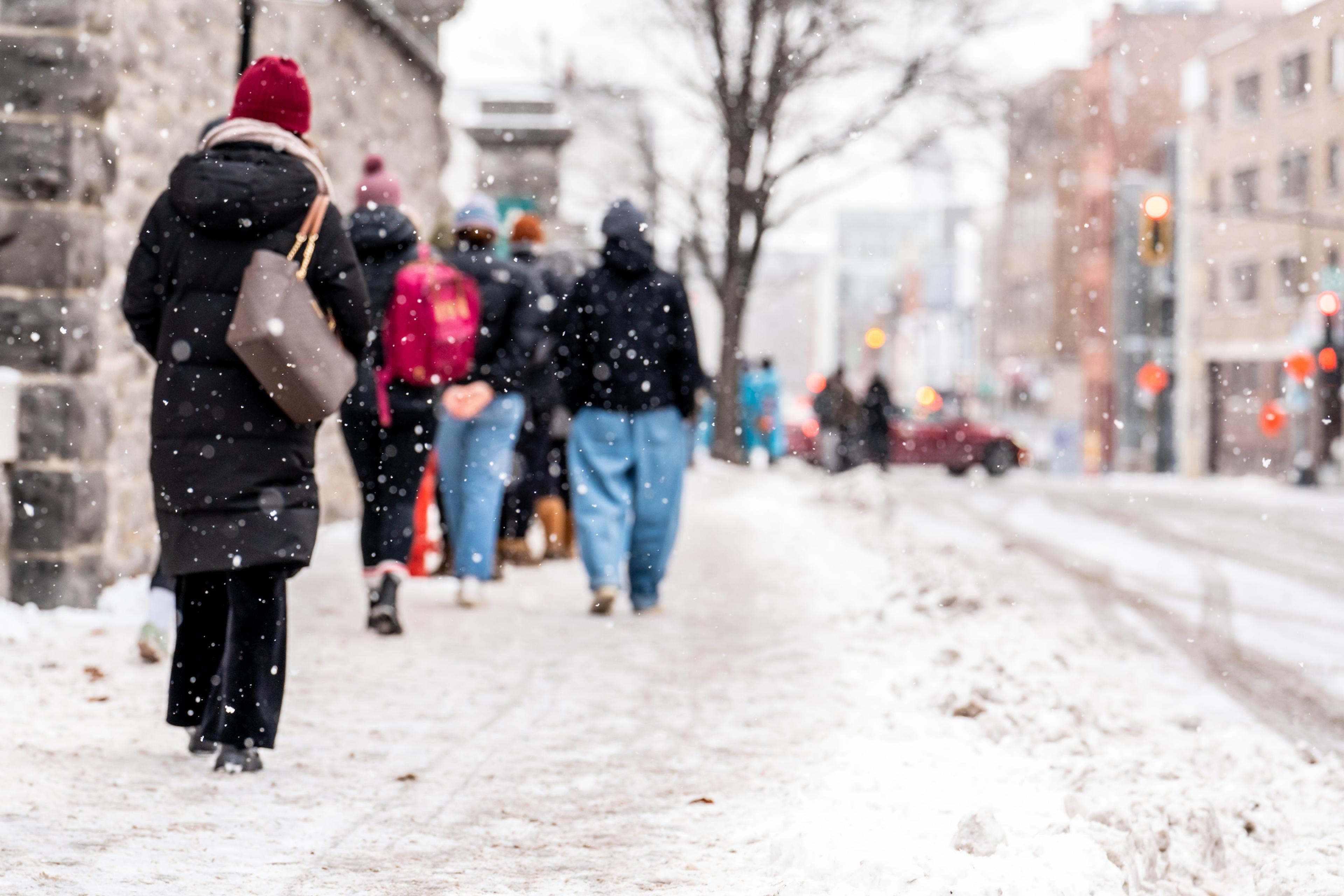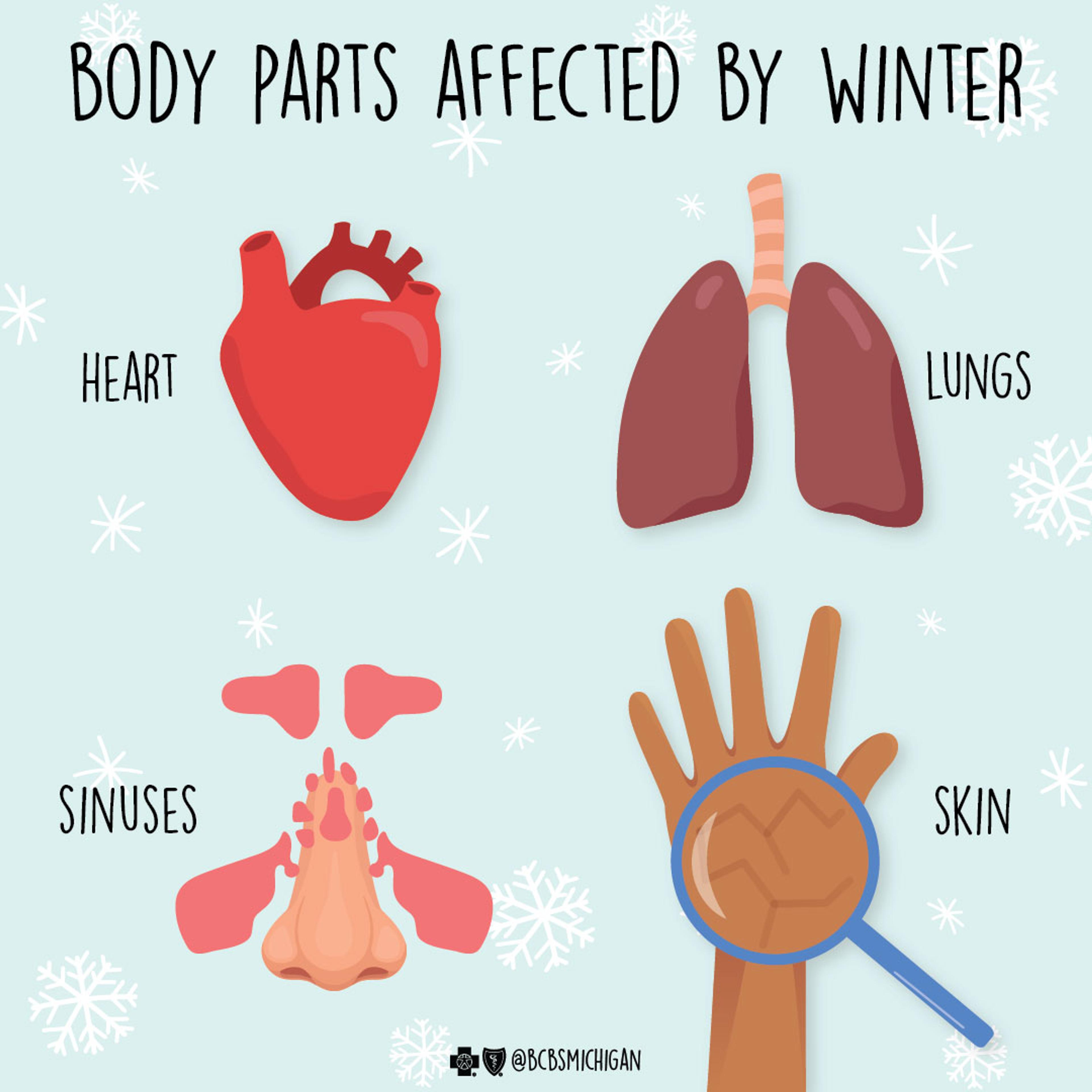How Winter Affects the Body

Blue Daily
| 4 min read

The winter months in the Midwest bring a host of weather changes as the temperature drops to near-freezing. All of this cold, dry air – coupled with more time spent indoors as a result – impacts the body.
We may notice it in small ways, with chapped lips, runny noses and achier joints. But those are just small indicators of our bodies adapting to the cold temperatures and winter conditions.
Here are some of the ways winter affects the body.
How does winter affect the heart?
A drop in temperature can cause the blood vessels to constrict and become narrower. Which means when it’s cold outside, the heart must work harder to pump blood throughout the body. This can also contribute to increased blood pressure, increased heart rate and thickening of the blood.
The added stress on the heart can increase the risk of heart issues, especially for those with existing heart conditions or for older adults.

How does winter affect the lungs?
Cold weather is an issue not because of the cold temperatures itself. The issue is the moisture content: cold air tends to hold less moisture than warm air. And escaping the dry air in the winter can be difficult: often indoor air is incredibly dry, as we crank up the thermostats to combat the freezing temperatures outside.
Cold weather is a common asthma trigger. The cold air outside can cause the airways in your body to swell up – making them narrower. This makes it harder for air to pass through to the lungs. The cold air can also cause the muscles in the body to tighten up and clamp down, also preventing air from passing through. People with asthma have sensitive bronchial tubes that can be easily irritated, resulting in asthma symptoms like coughing, wheezing and shortness of breath.
People with COPD, or chronic obstructive pulmonary disease, may experience lung spasms as a result of cold air exposure – which may feel similar to an asthma attack.
How does winter affect sinuses?
Cold air can also dry out the mucus in your sinuses – which is an issue for people with and without chronic lung disease. When the mucus in your sinuses dry out, the body may overcompensate and produce even more mucus. The cold air entering the nose can also cause the vessels in your nose to expand and stimulate more mucus production. This is why after you come in from being outside in the cold, you often have a runny nose.
When mucus dries out, the body is also vulnerable to infections – which could be a bigger health risk to people with chronic breathing problems. Increased mucus production can also increase congestion and worsen other respiratory symptoms in people with chronic breathing problems.
How does winter affect the skin?
Cold temperatures often mean low humidity and extremely dry air. There’s not much relief indoors either, as indoor heating systems often produce hot air that is also extremely dry. Additionally, taking hot showers in the winter may feel great – but the hot water can further contribute to skin dryness and itchiness.
Transitioning from cold outdoor air to warm indoor air can cause redness and inflammation in the skin, as the blood vessels in the skin are quickly expanding and contracting to accommodate the change in temperature.
Dryness is often a trigger for skin conditions like psoriasis and eczema. If you have a chronic skin condition and are working with a health care provider to manage your symptoms, talk to them about how best to navigate cold weather triggers during the winter months.
What individuals with arthritis should know
Cold weather doesn’t cause arthritis, but experts say it can make aches and pains worse. Freezing temperatures can slow your blood circulation, heighten the body’s sensitivity to pain and cause muscle spasms. Often, as temperatures drop, the amount of air pressure in the atmosphere (barometric pressure) changes as well. Some people find their joints react to this type of change as well – as a drop in barometric pressure could cause the muscles and tendons in the body to expand; putting pressure on an already painful joint.
Photo credit: Getty Images
Read related content:





